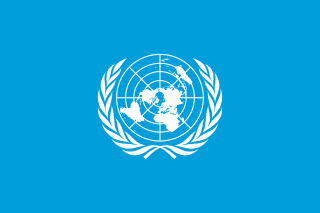In a diplomatic move aiming to quell rising hostilities, the United Nations General Assembly has passed a resolution calling for an immediate ceasefire in Gaza. The resolution passed with 158 countries in favour, 9 against, and 13 abstentions, underscoring a significant international consensus for peace amid escalating tensions in the region.
The resolution demands an end to all hostilities and emphasizes the need for immediate and sustained humanitarian access to Gaza. For many, it represents a critical intervention in a decades-long conflict marked by cycles of violence and fragile ceasefires that frequently collapse into renewed violence. The UN’s call highlights the breadth of international concern and the global community’s responsibility to strive towards long-term stability and peace.
Supporters of the resolution stress the humanitarian imperative, pointing to the acute suffering experienced by civilians caught in the crossfire. Organizations such as the International Red Cross and other humanitarian bodies have documented severe shortages of essential supplies, including food, water, and medical care, exacerbated by blocked access to aid.
Embed from Getty ImagesOpponents of the resolution argue that it undermines Israel’s right to defend itself against missile attacks launched by Hamas, insisting that any move towards a ceasefire must be accompanied by a firm guarantee of security for Israeli citizens. This viewpoint emphasizes the complex security considerations that any resolution must address to be viable.
The call for a ceasefire comes as the international community seeks to re-engage in comprehensive peace talks. The history of Israeli-Palestinian negotiations is fraught with setbacks, making the path to lasting peace both desired and elusive. Past efforts have often stalled due to mutual distrust, changes in political leadership, and controversial initiatives.
Looking ahead, many advocate that the resolution marks an opportunity, albeit challenging, to lay the groundwork for substantive dialogue. There is also a call for involving a broad array of stakeholders in the peace process, including representatives from neighboring Arab states, international partners, and neutral parties that can facilitate trust-building measures.
In the interim, ensuring the protection and well-being of civilians remains paramount. The resolution’s push for humanitarian corridors is now a focal point of international efforts, aiming to provide immediate relief to affected populations and set a tentative stage for further diplomatic engagement.
Perspectives
Perspective 1: Proponents of the UN ceasefire resolution see it as a crucial step towards the alleviation of the humanitarian crisis in Gaza. This perspective highlights the severe human suffering and emphasizes the international community’s moral obligation to protect civilians. Advocates argue that prioritizing humanitarian access and relief measures can serve as a prerequisite for stable negotiations, citing similar resolutions as instrumental in other conflict zones.
Sources:
NEWSWEEK
THE WASHINGTON POST
Perspective 2: Critics of the resolution argue it may compromise Israel’s security concerns by focusing disproportionately on ending hostilities without adequately addressing the root causes of violence, such as threats from Hamas. They assert that without a comprehensive security framework, ceasefires are likely to be temporary and unstable, making lasting peace elusive. These critics call for resolutions that integrate robust security guarantees for Israel alongside humanitarian considerations.
Sources:
REUTERS
THE NEW YORK TIMES
Perspective 3: Some diplomatic analysts perceive the UN’s action as a pivotal opportunity to refocus international attention on the Middle East peace process. This viewpoint supports leveraging the ceasefire resolution to rekindle meaningful negotiations, with a goal of addressing longstanding issues. The involvement of international stakeholders in mediating talks is suggested as a strategic move that could help overcome persistent barriers and introduce innovative solutions for peace.
Sources:
THE ECONOMIST
AL JAZEERA
